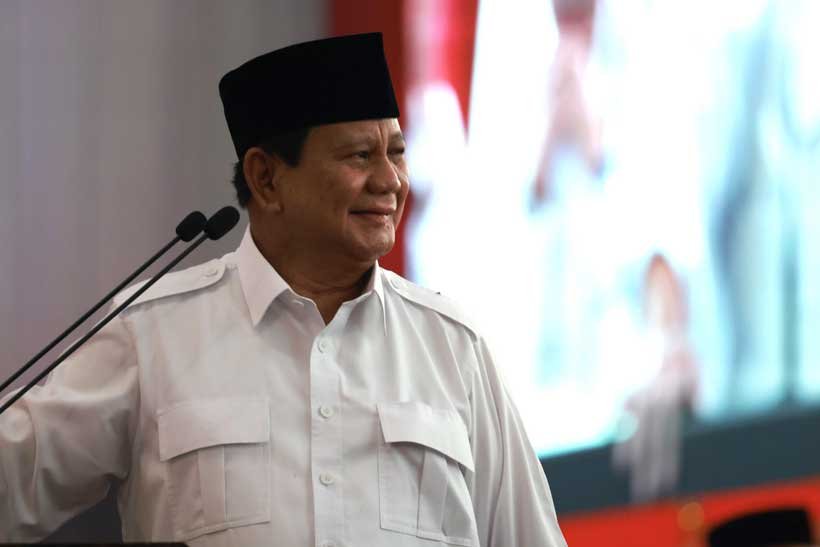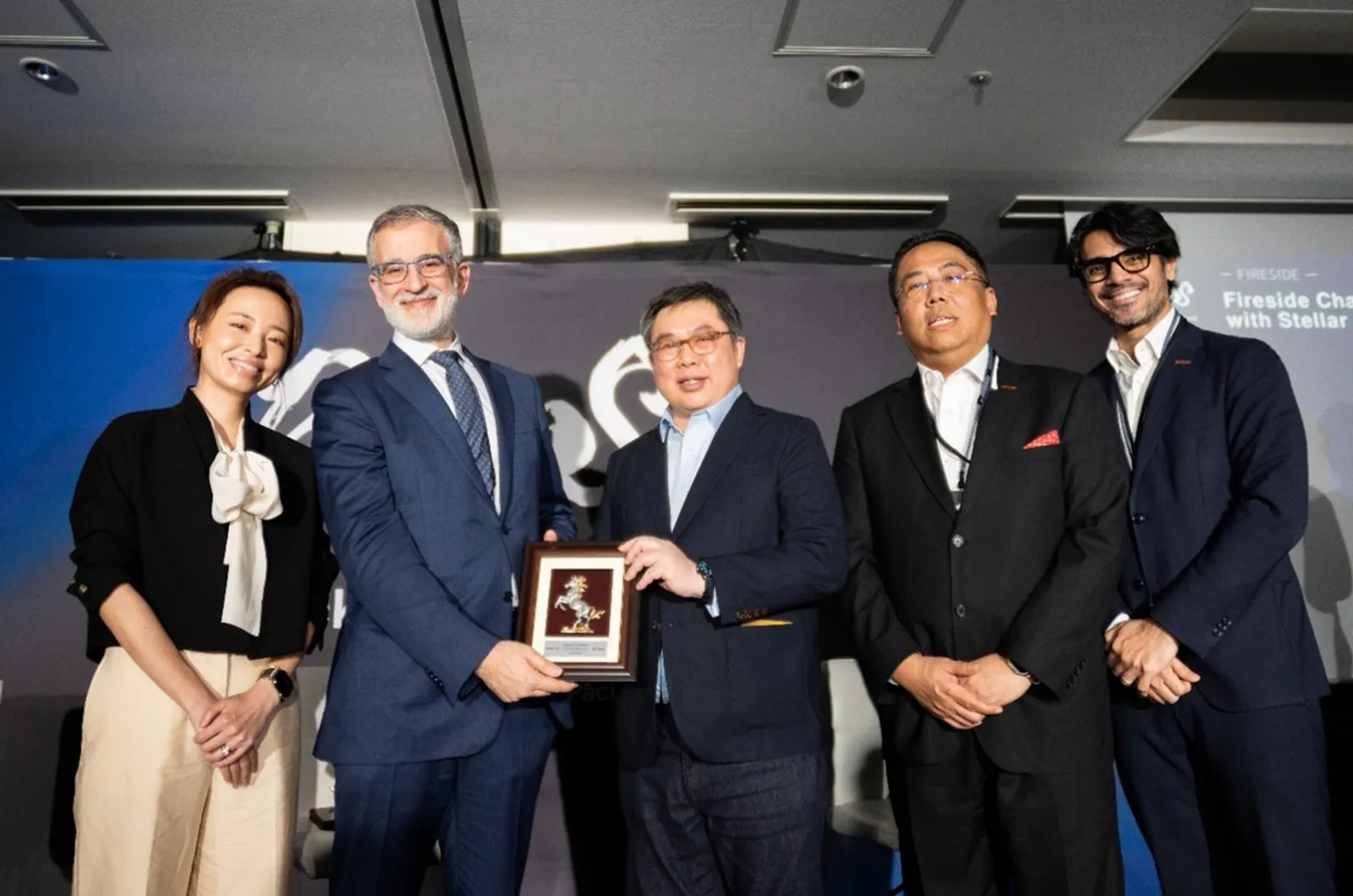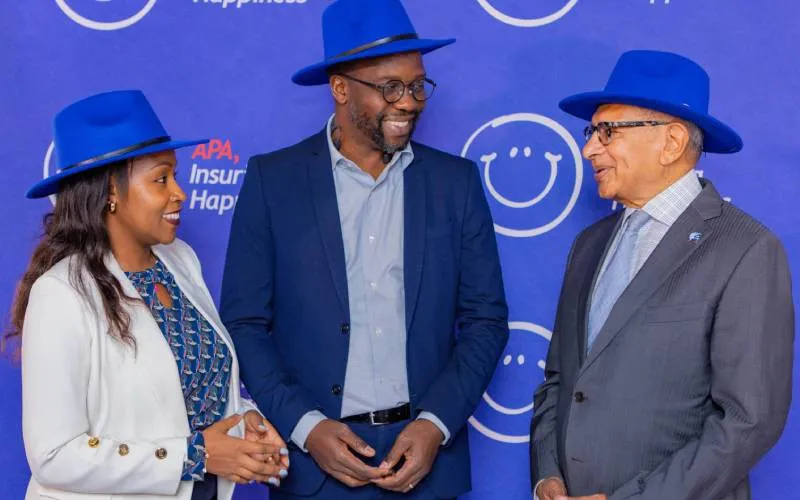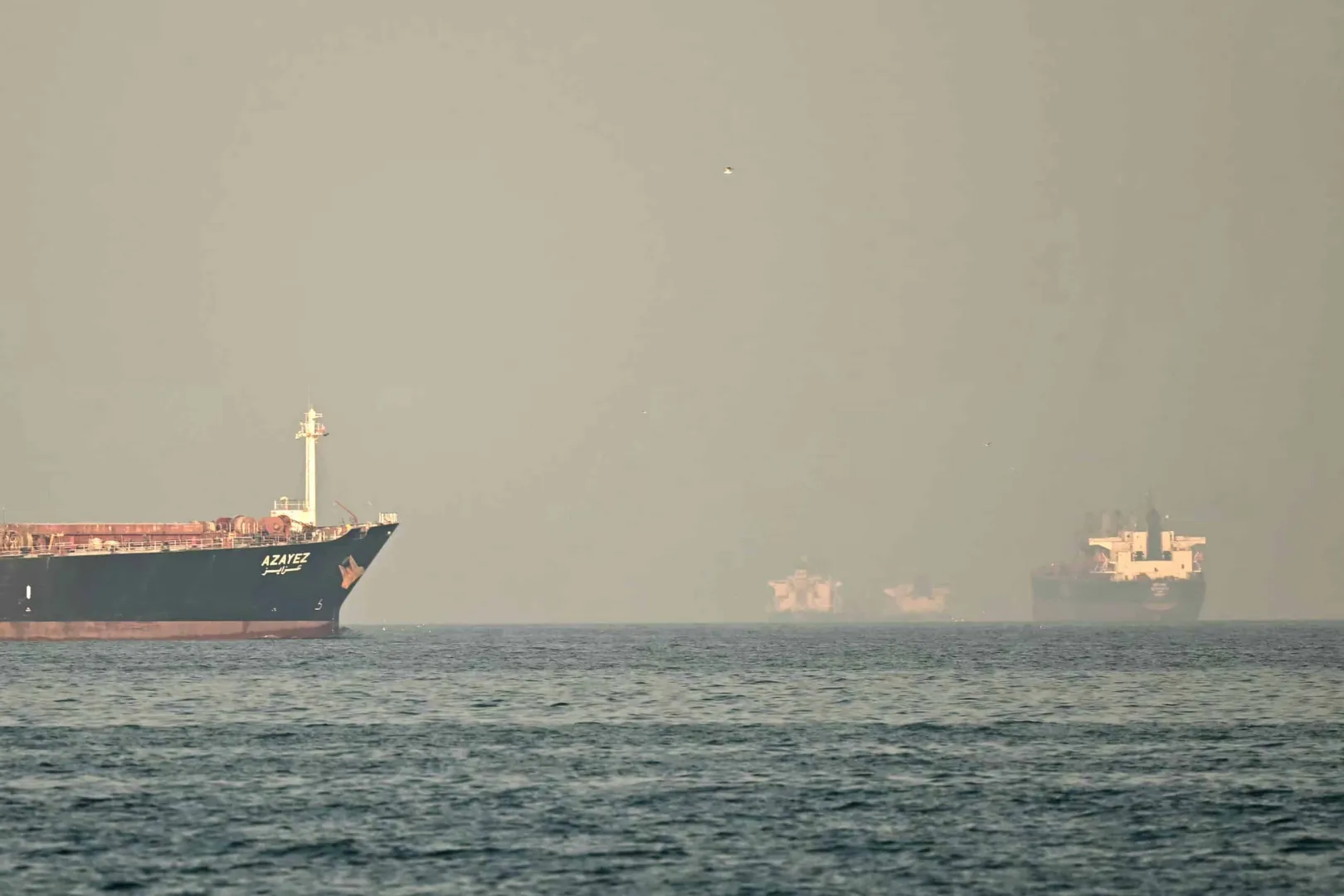Indonesia is making a bold call for the formation of a new economic bloc, aiming to safeguard regional stability and promote economic resilience amid escalating global tensions. This proposition was put forward by Indonesian Coordinating Minister for Economic Affairs Airlangga Hartarto at the World Government Summit 2025, held in Dubai, UAE, on February 12, 2025.
Speaking at the prestigious event, Hartarto highlighted how heightened geopolitical rivalries, particularly the ongoing trade war between the United States and China, are exerting significant pressure on global trade, investment flows, and economic stability. In response, he emphasized the need for stronger regional economic coalitions that can act as buffers against external shocks and foster sustainable economic growth.
The Rationale Behind Indonesia’s Call for a New Economic Bloc
Indonesia’s proposal for a new regional economic bloc is not without merit. The global economic landscape is shifting rapidly due to a combination of factors, including:
- The intensifying U.S.-China trade war, which continues to disrupt supply chains and increase trade uncertainties for many Asian economies.
- Rising geopolitical risks, such as tensions in the South China Sea, the Russia-Ukraine war, and instability in the Middle East, all of which have significant economic implications.
- Post-pandemic economic recovery challenges, with nations struggling to rebuild resilient economies while navigating high inflation, interest rate hikes, and disruptions in global logistics.
- The rise of protectionist policies, as many countries prioritize domestic industries over global trade cooperation.
Hartarto believes that regional economic cooperation—particularly through trade agreements and strategic alliances—can serve as a counterbalance to the unpredictability of the global market. His emphasis on leveraging economic blocs like ASEAN, the Gulf Cooperation Council (GCC), and the Indo-Pacific Economic Framework (IPEF) suggests Indonesia’s ambition to strengthen ties with both existing partners and emerging economic powers.
The Role of ASEAN in Regional Economic Stability
Hartarto specifically pointed to ASEAN’s role as a stabilizing force in Southeast Asia, noting that the 10-member bloc has long acted as an economic buffer against global uncertainties.
ASEAN, comprising Brunei, Cambodia, Indonesia, Laos, Malaysia, Myanmar, the Philippines, Singapore, Thailand, and Vietnam, has become one of the world’s fastest-growing economic regions, boasting a combined GDP of over $3.8 trillion. The region has also successfully positioned itself as a global manufacturing and trade hub.
Indonesia, as the largest economy in ASEAN with a GDP exceeding $1.3 trillion and a population of over 200 million, has been an influential voice in shaping the region’s economic policies. Its recent push for stronger trade cooperation signals a broader strategy to reduce reliance on Western economies and mitigate the impacts of external trade disruptions.
Strengthening Economic Ties with the Gulf Cooperation Council (GCC)
Beyond ASEAN, Indonesia is also seeking to deepen economic ties with the Gulf Cooperation Council (GCC), which consists of Saudi Arabia, the United Arab Emirates, Qatar, Kuwait, Bahrain, and Oman.
According to Hartarto, Indonesia is optimistic about the progress of the ongoing Free Trade Agreement (FTA) negotiations with the GCC, as such an agreement would open new markets for Indonesian goods, services, and investments in key sectors, including:
- Energy collaboration: With Indonesia being a major energy consumer and the Gulf region holding vast oil and gas reserves, enhanced cooperation could help both regions achieve their energy security goals.
- Infrastructure investments: The GCC has been increasing its investments in Southeast Asia, and Indonesia is keen to attract more capital to fund major infrastructure projects.
- Islamic finance and banking: With both Indonesia and the Gulf states having strong Islamic finance sectors, greater collaboration in Sharia-compliant banking and investment could further integrate the two regions.
A successful Indonesia-GCC FTA would reduce trade barriers, enhance investment flows, and promote joint economic ventures, creating mutual economic benefits for both regions.
Indonesia’s Economic Growth Ambitions and Global Trade Strategy
Minister Hartarto emphasized that these international partnerships align with Indonesia’s broader economic growth strategy, which aims to:
- Achieve a GDP growth target of 8% in the coming years.
- Increase infrastructure financing through foreign direct investments and public-private partnerships.
- Expand Indonesia’s role in global trade, positioning itself as a key player in regional and international supply chains.
- Strengthen technology collaboration, particularly in digital transformation, artificial intelligence, and green energy solutions.
Indonesia has already taken proactive steps to boost foreign investment and ease business regulations, with policies that encourage greater participation from international businesses in sectors like renewable energy, technology, and manufacturing.
A Global Shift Toward Economic Blocs?
Indonesia’s proposal for a new economic bloc comes at a time when many countries are reassessing their trade alliances. The last few years have seen the rise of economic coalitions that prioritize regional self-sufficiency and reduced dependence on traditional global powers.
Some of the most notable examples include:
- The African Continental Free Trade Area (AfCFTA): Launched in 2021, this agreement aims to boost intra-African trade by reducing tariffs and creating a single market of over 1.3 billion people.
- The Regional Comprehensive Economic Partnership (RCEP): Signed in 2020, RCEP is the world’s largest trade agreement, covering China, Japan, South Korea, Australia, New Zealand, and all ASEAN nations.
- The Indo-Pacific Economic Framework (IPEF): Spearheaded by the U.S., IPEF is designed to strengthen economic cooperation between Pacific and Asian nations, particularly in digital trade, supply chain resilience, and climate initiatives.
Indonesia’s push for a new economic bloc could align with these ongoing efforts, focusing on fostering greater trade integration among emerging economies rather than relying on existing Western-led structures.
Challenges and Considerations for a New Economic Bloc
While the idea of a new regional economic bloc is promising, it is not without challenges. Some of the key considerations include:
- Alignment of member countries: Any new economic coalition would require strong political and economic alignment among its members, which can be difficult given differing national interests.
- Trade barriers and tariffs: Negotiating lower tariffs and creating seamless trade policies can be complex, particularly for countries with protectionist tendencies.
- Geopolitical risks: Given the current U.S.-China trade war, some countries may be reluctant to align themselves too closely with a new economic bloc, fearing repercussions from major powers.
- Regulatory and financial integration: Differences in banking regulations, taxation policies, and legal frameworks may pose challenges to deeper economic integration.
Conclusion: A Strategic Shift for Indonesia and the Region
Indonesia’s call for a new economic bloc underscores the shifting global economic landscape and the urgent need for regional self-reliance.
With rising geopolitical uncertainties, Indonesia is positioning itself as a leader in economic diplomacy, advocating for stronger regional trade cooperation and investment partnerships. Whether this results in the formation of a completely new bloc or simply a strengthening of existing frameworks like ASEAN and the GCC, one thing is clear:
The future of global trade will be increasingly shaped by regional alliances rather than traditional Western-led institutions.
As Indonesia continues its diplomatic efforts to bolster economic resilience, the success of its vision will largely depend on how well it can forge strategic partnerships, navigate geopolitical complexities, and implement policies that foster inclusive economic growth.
If executed effectively, Indonesia’s push for a stronger regional economic coalition could set a precedent for other emerging economies, paving the way for a more balanced and diversified global economic order.
Ready to take your career to the next level? Join our dynamic courses: ACCA, HESI A2, ATI TEAS 7 , HESI EXIT , NCLEX – RN and NCLEX – PN, Financial Literacy!🌟 Dive into a world of opportunities and empower yourself for success. Explore more at Serrari Ed and start your exciting journey today! ✨
photo source: Google
By: Montel Kamau
Serrari Financial Analyst
13th February, 2025
Article, Financial and News Disclaimer
The Value of a Financial Advisor
While this article offers valuable insights, it is essential to recognize that personal finance can be highly complex and unique to each individual. A financial advisor provides professional expertise and personalized guidance to help you make well-informed decisions tailored to your specific circumstances and goals.
Beyond offering knowledge, a financial advisor serves as a trusted partner to help you stay disciplined, avoid common pitfalls, and remain focused on your long-term objectives. Their perspective and experience can complement your own efforts, enhancing your financial well-being and ensuring a more confident approach to managing your finances.
Disclaimer: This article is for informational purposes only and does not constitute financial advice. Readers are encouraged to consult a licensed financial advisor to obtain guidance specific to their financial situation.
Article and News Disclaimer
The information provided on www.serrarigroup.com is for general informational purposes only. While we strive to keep the information up to date and accurate, we make no representations or warranties of any kind, express or implied, about the completeness, accuracy, reliability, suitability, or availability with respect to the website or the information, products, services, or related graphics contained on the website for any purpose. Any reliance you place on such information is therefore strictly at your own risk.
www.serrarigroup.com is not responsible for any errors or omissions, or for the results obtained from the use of this information. All information on the website is provided on an as-is basis, with no guarantee of completeness, accuracy, timeliness, or of the results obtained from the use of this information, and without warranty of any kind, express or implied, including but not limited to warranties of performance, merchantability, and fitness for a particular purpose.
In no event will www.serrarigroup.com be liable to you or anyone else for any decision made or action taken in reliance on the information provided on the website or for any consequential, special, or similar damages, even if advised of the possibility of such damages.
The articles, news, and information presented on www.serrarigroup.com reflect the opinions of the respective authors and contributors and do not necessarily represent the views of the website or its management. Any views or opinions expressed are solely those of the individual authors and do not represent the website's views or opinions as a whole.
The content on www.serrarigroup.com may include links to external websites, which are provided for convenience and informational purposes only. We have no control over the nature, content, and availability of those sites. The inclusion of any links does not necessarily imply a recommendation or endorsement of the views expressed within them.
Every effort is made to keep the website up and running smoothly. However, www.serrarigroup.com takes no responsibility for, and will not be liable for, the website being temporarily unavailable due to technical issues beyond our control.
Please note that laws, regulations, and information can change rapidly, and we advise you to conduct further research and seek professional advice when necessary.
By using www.serrarigroup.com, you agree to this disclaimer and its terms. If you do not agree with this disclaimer, please do not use the website.
www.serrarigroup.com, reserves the right to update, modify, or remove any part of this disclaimer without prior notice. It is your responsibility to review this disclaimer periodically for changes.
Serrari Group 2025
















